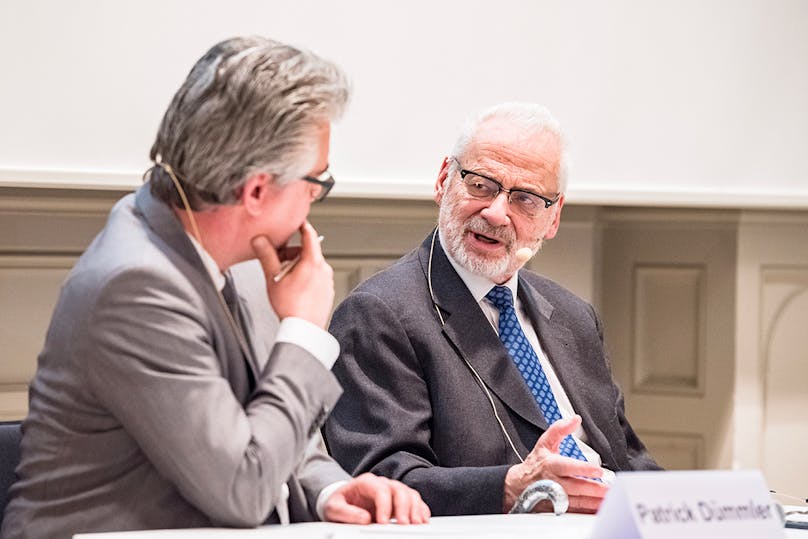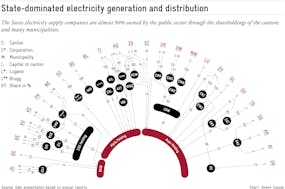Current debate about Europe can give the impression that everyone is focused on countles new and detailed questions. But at the latest thrice yearly ‘Foreign Policy Aula’ organized jointly by Avenir Suisse and the Swiss Society for Foreign Policy, the audience was treated to the ‘big picture’ from Erhard Busek, Austria’s former vice-chancellor. In his long career as former party leader of the ÖVP and current chairman of the Institute for the Danube Region and Central Europe, Mr Busek knows more than most about all Europe’s present and past challenges:
Unfinished Europe
Presenting the EU’s emerging East-West contradictions and the rise of neo-nationalism in individual member states, Busek noted critically that the EU had only partially implemented its original three pillar project. It had focused on the feasible and obvious – the European Economic Community – while the European Political Community and European Defense Community remained little more than pipedreams.
Busek argued Europe was now at a critical juncture: the economic community had succeeded, and 7 percent of the world’s population accounted for 22 percent of global economic output. But would Europe be able to hold that position? Not one of the world’s leading technology companies was European. Moreover, Europe’s geopolitical influence was in constant retreat: in Syria, the Middle East or through “America First”. To what extent would Europe remain capable of acting in future, especially against the growing influence of nationalist and populist tendencies?

Discussion between Erhard Busek and Patrick Dümmler of Avenir Suisse at the Aula event at the University of Bern. (Pictures: Susanne Goldschmid)
Divisive influences had recurred regularly in the continent’s history, and it is precisely for that reason that they should remain a cause for concern, he said. The emblem of the Danube monarchy was crowned with the words: “Indivisibiliter ac inseparabiliter” (Inseparable and Indivisible) but it did not help much in the end.
Missed opportunities after 1989
In 1989, a fateful year for the Europe, hopes were high for a more united continent. History, however, did not end then, as Francis Fukuyama proclaimed. Instead, more history was to come.
“At that time, we made the terrible mistake of underestimating democratic education.” The civic movements that brought down Communism were spearheaded by outstanding individuals, not politicians. Right there, Europe`s rebuilding process should have been based on information and education on democratic institutions. That would have made it possible to better support the young states in taking their own future on hand. The fact that politicians from the new member states were for many years unable to take senior positions in the EU hierarchy was ultimately a stumbling block to the EU’s internal unity. “Europe has been sold as a peace project, but we have not quite reached peace yet.”
Finding common grounds
The EU is without doubt a major economic success, with business having provided the major contribution. But that is not sufficiently acknowledged by the media, says Busek. As little as one might love the single market, human rights are enough for unity. “What does Europe really mean?” The founding fathers did not concern themselves enough with this question. But it must be addressed and discussed most widely, among member state and non-members, said Busek, looking also to Switzerland.
He saw considerable similarities in the field of culture, in spite (or because) of the fact that the cultural budget was the least endowed of the entire EU. Education could also contribute to building bridges. Ralf Dahrendorf has already recognized its potential and promoted the Erasmus program for universities. “But universities must also realize that they are actually a European invention.” To Busek, co-author of the book “Mitteleuropa Revisited” [1] the question regarding the future development of the European continent depended on whether basic research prospered and what we have in common being put before divisiveness.
[1] Emil Brix and Erhard Busek (2018): «Mitteleuropa revisited. Warum Europas Zukunft in Mitteleuropa entschieden wird». Kremayr & Scheriau.





